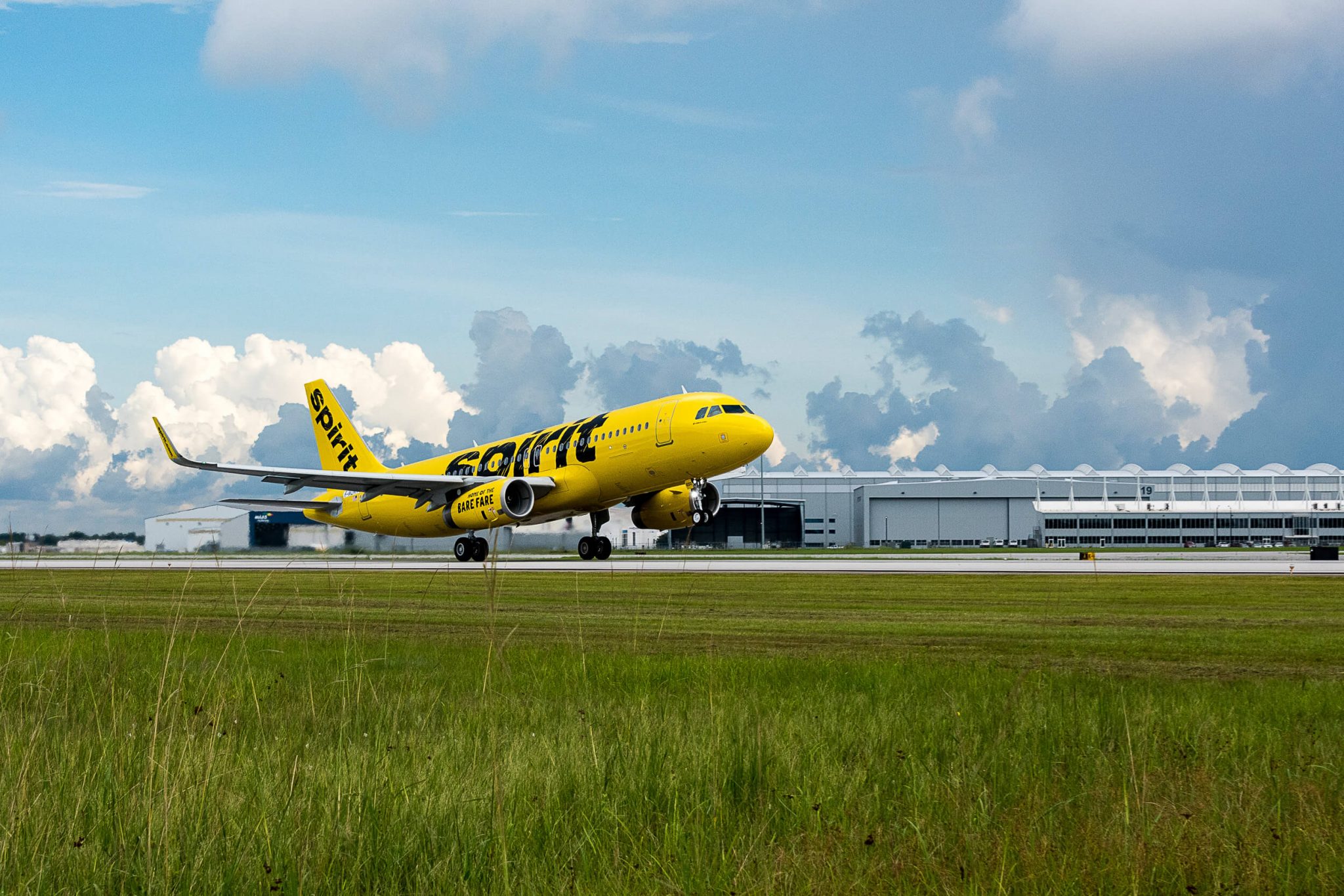Spirit Airlines has emerged from its financial restructuring on March 12, 2025, reducing its debt by around $795 million.
Spirit confirmed it will be moving ahead with its premium offerings, supported by a $350 million equity investment from existing investors. The company’s reorganisation plan was confirmed by a US bankruptcy court in February 2025, with “overwhelming support from a supermajority of the company’s loyalty and convertible noteholders”.
“Throughout this process, we've continued to make meaningful progress enhancing our product offerings, while also focusing on returning to profitability and positioning our airline for long-term success,” said Spirit CEO and president Ted Christie, who will continue leading the team. “Today, we're moving forward with our strategy to redefine low-fare travel with our new, high-value travel options."
The premium offering strategy was first announced in August last year after a disappointing second quarter $192 million net loss and prior to it filing for bankruptcy in November 2024. Spirit management said the premium offerings would come at an affordable price. Chief commercial officer and executive vice president Matt Klein said: “We are not abandoning our low-cost position, but rather we are leveraging it.”
Airline Economics SVP – airline analysis Chris Broad said the strategy is reflective of the US market turning to full service legacy carriers as opposed to low-cost and ultra low-cost carriers.
“It will be interesting to see how Spirit manages this transformation,” said Broad. “With one eye on the US economy and the risk of it weakening, will this result in consumers having less disposable income and will the shift to more premium levels of service and asking consumers to pay more be achievable in an already crowded market of full-service airlines?”
With US tariffs, risks for economic uncertainties are widening. During the JP Morgan Industrials Conference this week, the ‘recession’ word cropped up from airline executives. JetBlue – which tried and failed to merge with Spirit last year – CFO Ursula Hurley said at the conference that the company is “watching the environment” and is being treated as a risk factor.
AerCap CEO Aengus Kelly said in an interview with CNBC: “Demand is strong. This is not like airline recessions of the past where we have two seats chasing one passenger.”
At the time of its announcement, Klein said the adoption and acceptance of the new premium products will “take time”.
Speaking to one lawyer, they agreed that the turnaround would be a lengthy process. “It’s almost ingrained in popular culture that Spirit has poor service,” the lawyer said.
They questioned whether the uptake would ever materialise – noting that with Spirit being synonymous with low-cost, no frills, customers willing to pay more would likely opt for another airline. They added that the Spirit would have to “re-educate the market” for greater uptake.
Airline Economics SVP – appraisals Gary Crichlow commented: “Spirit is not the only low cost carrier trying to adapt to an economic environment that is expected to increasingly put pressure on price sensitive travellers: both Southwest and Frontier have unveiled strategies to do so.”
Frontier and Spirit had exchanged a lengthy back and forth, with Spirit rejecting Frontier’s merger offer for a third time in February 2025, opting to move ahead with its standalone plan. Frontier had said it would not pursue a merger with Spirit post-restructuring.
With the restructuring deal approved, Judge Sean Lane in the Southern District of New York handed over control of Spirit to its majority bondholders, including Citadel Advisors, PIMCO, and Western Asset Management, according to court documents.
Another lawyer believed that a merger agreement may still prove viable once the new owners “look under the hood” and assess the value of Spirit. They added that the rebranded Spirit may mean a better chance of a merger. They added that Spirit’s fleet of over 200 A320 family aircraft may also prove attractive in this supply constrained environment.
Airline Economics SVP – finance analysis Justin Patrick said: “Spirit has rejected Frontier’s advances to remain independent. Timing can be everything and with dark economic clouds on the horizon it could be regarded as risky for a small ULCC to move to a premium product offering in a crowded market, when in fact lower disposable incomes might shift the market back to wanting a low-cost offering.”
Crichlow continued: “That wider strategy puts them up against the full service airlines that already have a diverse revenue stream that ranges from basic economy to first class and spans both domestic and international routings, and have mature programmes in place to capture less price sensitive customers’ loyalty.”
With Spirit cutting capacity by around 16% overall at key airports such as LaGuardia and LAX as part of its restructuring plan, Crichlow said this reflects the US domestic market’s focus on profitability over market share.
“How much room is there in each given market to be profitable when the underlying structural costs in that market have converged?” he continued. “Spirit will have its work cut out to be find the market niches where it can grow and dominate over competitors.”
Upon Spirit's emergence, the common stock issued by Spirit Airlines was cancelled. Newly issued shares now held by Spirit's new owners are expected to trade in the over-the-counter marketplace. The company said it expects to re-list its shares on a stock exchange “as soon as reasonably practicable”.
In addition, Spirit emerges with a reconstituted board of directors. The board will include Christie, as well as six directors with industry and financial leadership experience. The board includes Robert A. Milton, David N. Siegel, Timothy J. Bernlohr, Eugene I. Davis, Andrea Fischer Newman, and Radha Tilton.
Davis Polk & Wardwell is serving as the company's restructuring counsel, Alvarez & Marsal is serving as restructuring advisor, and Perella Weinberg Partners is serving as investment banker.

